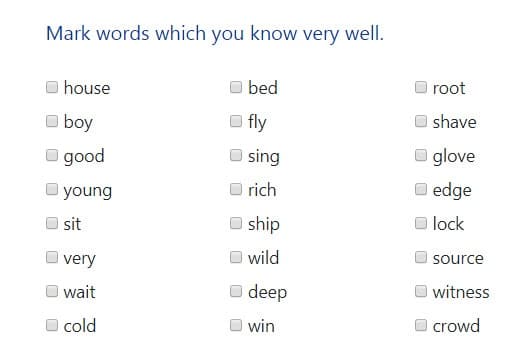Conquering Writer’s Block & Procrastination: Dissertation Writing Tips & Strategies – level 1
22-07-2024 17:00
Writer’s block is a widespread psychological problem that can take many forms, including avoiding the tiresome and challenging writing process.
It is not an indication of incompetence but rather an expected component of the writing process. Waiting until you feel ready or inspired is a lousy strategy for coping with writer’s block, as is conducting extra research when overwhelmed.
It is a formidable foe for students writing a thesis, from subject selection to final editing.
However, with the proper tactics and approach, you can overcome writer’s block and progress significantly on your thesis.
This essay delves into practical ways to overcome writer’s block and maximize your academic writing abilities.
What is Writer’s Block?
Writer’s block is a typical problem that can lead to irritation, self-doubt, and worry when generating written work. It is not a one-size-fits-all condition; each person’s symptoms will differ.
Significant considerations include psychological obstacles, timing and phases, external and internal influences, a perceived lack of ideas, and fear of evaluation.
Fear of failure, perfectionism, self-criticism, and academic anxiety are all potential psychological hurdles.
Distractions, time restrictions, and a lack of resources can all contribute to writer’s block, as can psychological reasons such as self-doubt, fear of criticism, and pressure to fulfill high expectations.
Recognizing these variables can help you address the underlying reasons for writer’s block. Writer’s block can also be caused by a perceived lack of ideas and a dread of being evaluated.
Recognizing that writing is a continuous process of refinement and correction might help ease this dread.
The Relationship Between Writer’s Block & Procrastination
Writer’s block is sometimes mistaken as a mental block that hinders creativity, although it relates to procrastination.
The primary causes of procrastination include fear, perplexity, motivation, and distractions. Fear can lead to avoiding chores entirely, while misunderstanding can lead to avoiding the issue.
To overcome these obstacles, concentrate on improving something that does not exist, such as creating a “shitty first draft.”
Seeking answers from internet sites or individuals might help you get started. Motivation is a complex idea, especially when working against a deadline. Instead of merely writing when motivated, concentrate on writing while motivated.
Distractions, such as the physical surroundings and social media, can impede writing. To combat them, alter your surroundings, eliminate them, or try ignoring them using headphones and white noise.
Understanding the reasons for procrastination allows us to address the issue better and enhance our writing skills.
How to Overcome Writer’s Block?
Given below are some of the most effective tips that can help you overcome writer’s block and stop procrastinating your dissertation work—
Stop Self -doubting
Writing is difficult due to negative feelings such as irritation with writing rules or the publication process, resentment about previous attempts at writing that went unrecognized or undervalued, and anxieties about not being good enough.
Before writing, you must learn to suppress these unpleasant ideas and sensations. This will assist with editing and getting beyond writer’s block.
Recognizing and admitting these negative thoughts and feelings can be an essential first step toward overcoming writer’s block.
Use Writing Prompts
Writing prompts for dissertation writing are simple words or statements that spark creativity and urge writing. They will not inspire excellence or make sense, but they do assist you start writing.
The power of writing prompts resides in their capacity to spark ideas for novels or stories or just leave them unfinished.
They can be about anything, including nonfiction, and can be used for journaling, expressing thoughts, brainstorming ideas, and creative fictional activities.
The idea is to realize that nothing you write with a prompt needs to be anything, and the goal is to get you going.
Stick to a Routine
A writing regimen is critical for generating inspiration and ideas. It should be done daily and consistently. A writing commitment drives you to write, acting as a stimulus to produce. Consistency is essential for overcoming writer’s block.
Create a schedule that works for you by setting up a specific time each day or week for focused writing. Consistency develops momentum and teaches your brain to link specific periods with creative activity.
Even if the words don’t come quickly, writing daily helps you overcome reluctance and primes your mind for creativity.
Begin with reasonable goals and progressively expand your writing time as your habit develops. Small, persistent steps result in significant growth over time.
Avoid Overwhelming Yourself
Writing a thesis is challenging, especially when starting with a blank page. Without a strategy, the scope of the endeavor might cause anxiety and feelings of overwhelm.
A proper strategy divides the activity into smaller chunks, making it less frightening.
The Pomodoro technique is one of the most influential and simple methods for managing time, creating goals, and rewarding oneself.
It divides your day into 25-minute blocks of distraction-free, goal-oriented effort interspersed by pauses and incentives.
Consider What Surrounds You
To improve your writing and study environment, explore the following questions.
- Where is your ideal writing location?
- Do incentives work for you?
- Which do you prefer: music or silence?
- Which areas feel most productive to you?
- Do you feel invigorated or distracted while you’re with other people?
- What time of day is ideal for you?
- Do you need to motivate yourself to get the job done?
After expressing your values on paper, compare your current work environment to your ideal and determine whether any improvements or adjustments are required.
This activity can assist you in determining your writing requirements and creating a more productive and pleasurable workplace.
Last Note
Writing, particularly dissertations, is highly demanding. Therefore, you must prioritize your health and well-being.
Take pauses from your computer screen to exercise your body and do some mild stretching. If you feel other health difficulties cause that writer’s block, you should seek counseling and treatment at the university.
Writing is a talent that can be honed over time, and getting beyond writer’s block is an essential step in becoming a more confident and prolific academic writer.
It is important to avoid overwhelming yourself with specifics. Nonetheless, reformulating phrases five times is unnecessary. If you’re stuck, move on to another spot.
Academic papers are rarely written in chronological order, so begin writing wherever suits you best, and don’t be afraid to leave primitive ideas as they are. This will help you write more quickly and efficiently.
What do you think abou this?
LEARN 3000 WORDS with NEWS IN LEVELS
News in Levels is designed to teach you 3000 words in English. Please follow the instructions
below.
How to improve your English with News in Levels:

Test
- Do the test at Test Languages.
- Go to your level. Go to Level 1 if you know 1-1000 words. Go to Level 2 if you know 1000-2000 words. Go to Level 3 if you know 2000-3000 words.

Reading
- Read two news articles every day.
- Read the news articles from the day before and check if you remember all new words.

Listening
- Listen to the news from today and read the text at the same time.
- Listen to the news from today without reading the text.

Writing
- Answer the question under today’s news and write the answer in the comments.

Speaking
- Choose one person from the Skype section.
- Talk with this person. You can answer questions from Speak in Levels.
Stock images by Depositphotos


